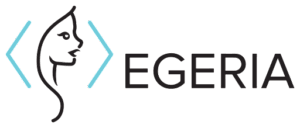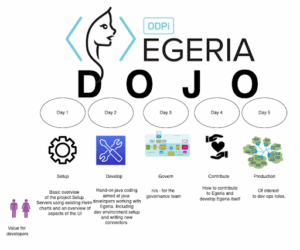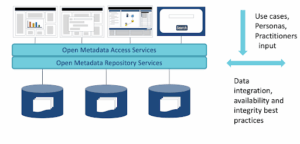Guest Author: David Radley (Egeria maintainer @IBM)

RESCHEDULED: Update your calendars! The popular Egeria Dojo program is here:
https: //wiki.lfaidata.foundation/display/EG/Egeria+Dojo+program
This is the 3rd day of the Egeria Dojo series (being presented over 2 half days).
| Title | Egeria Govern Dojo |
| Zoom Conference | https://zoom.us/j/523629111 |
| Dojo material | https://egeria-project.org/education/egeria-dojo/metadata-governance/overview/ |
| When | November 2022
21st and 22nd 14:00-17:00 UTC. |
| Intended audience | Governance team |

- If you want to try Day 1 Setup Dojo follow https://egeria-project.org/education/egeria-dojo/running-egeria/running-egeria-intro/
- If you want to try Day 2 Develop Dojo follow https://egeria-project.org/education/egeria-dojo/developer/overview/
Dojo presenter:
This Dojo is being run by the Egeria project lead Mandy Chessell.
Dojo Details:
This is a hands on session on Metadata Governance using Egeria for Governance team, who are interested in implanting mature information governance practises across the information landscape using Egeria,
If you are familiar with Egeria – you will know that it provides an open set of types to describe you information landscape, allowing you to easily integrate information sources by mapping to a open common way of communicating.
Now you have described your world in metadata, means you have an information picture or your landscape in metadata. This view is across vendors, across technologies and across domains.
This dojo will show you how an organisation can govern coherently across this landscape.
The Dojo will cover the following aspects of governance:

Metadata Supply
An Information Supply Chain identifies the flow of a particular type of data across a digital landscape. It is an architectural construct that can provide the focus for data governance activities that ensure data is delivered where it is needed in a timely and efficient manner.
Lineage
Lineage shows how data flows from its origins to its various destinations. This includes details of processing along the way.
Effectivity
- Understand not just what was is stored in the metadata now, but what was known at a particular moment in time.
- Define when a particular element is effective (i.e. visible and active) and when it ceases to be effective.
Deduplication
Duplicate management identifies multiple metadata instances that represent the same concept or resource.
Metadata Discovery
An automated process that extracts metadata about a digital resource. This metadata may be:
- embedded within the asset (for example a digital photograph has embedded metadata), or
- managed by the platform that is hosting the asset (for example, a relational database platform maintains schema information about the data store in its databases), or
- determined by analysing the content of the asset (for example a quality tool may analyse the data content to determine the types and range of values it contains and, maybe from that analysis, determine a quality score for the data).
Governance Actions
A Governance action describes some processing that is part of the governance of an organization’s asset or the metadata that describes them.
Governance Maturity
There are five levels of maturity that build on one another until the organization is able to support a wide range of advanced resource and data use along with appropriate self-service access to data for a majority of people in the organization.
Egeria
LF AI & Data Resources
- Learn about membership opportunities
- Explore the interactive landscape
- Check out our technical projects
- Join us at upcoming events
- Read the latest announcements on the blog
- Subscribe to the mailing lists
- Follow us on Twitter or LinkedIn
- Access other resources on LF AI & Data’s GitHub or Wiki